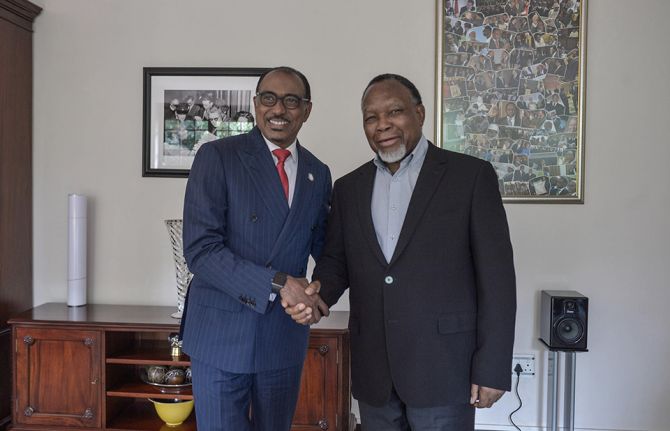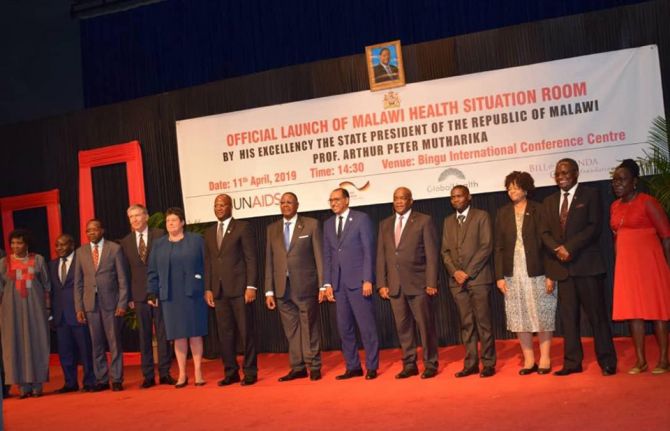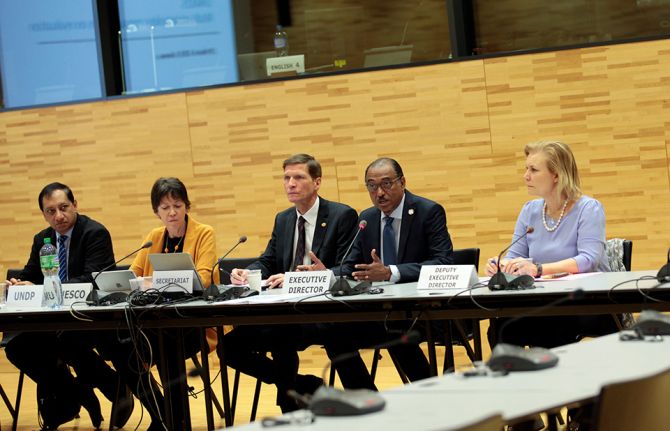

UNAIDS Executive Director Michel Sidibé speaking at the opening of the XVII International Conference on AIDS and Sexually Transmitted Infections in Africa (ICASA). 07 December 2013. Cape Town, South Africa.
Feature Story
Africa’s largest AIDS conference opens in Cape Town
08 December 2013
08 December 2013 08 December 2013Delegates from across the world gathered in Cape Town, South Africa on 6 December for the start of the XVII International Conference on AIDS and Sexually Transmitted Infections in Africa (ICASA). The five-day conference is being held on a sombre note as the world mourns the death of Nelson Mandela, who is considered Africa’s greatest statesman.
The Deputy President of South Africa, Kgalema Motlanthe welcomed participants to his country and paid tribute to Former President Nelson Mandela, saying “We will miss his larger than life figure, his statesmanship, his common touch, contagious humour and unbending resolve to see through a dream of a better life for all humanity.” He then went on to talk about the huge progress made in the AIDS response and said, “Investment in good health should be considered as a development imperative in and of itself.”
The theme of the five-day conference is “Now more than ever: targeting zero” and it was selected to stress the progress that has been made across Africa in scaling up HIV treatment but also the need to redouble efforts to prevent new HIV infections. More than 5 000 representatives of political, multilateral and civil society groups, as well as scientists, young people and activists are attending the conference.
Speakers at the opening ceremony included: UNAIDS Executive Director Michel Sidibé, the First Lady of Zambia Christine Kaseba-Sata, the celebrated singer and activist and UNAIDS International Goodwill Ambassador, Annie Lennox, the Acting Global AIDS Coordinator of the President’s Emergency Plan for the AIDS Relief, Deborah von Zinkselnagel, Professor Robert Soudré, President of the Society for AIDS in Africa, Professor Ian Sanne, CEO of Right to Care and Cyriaque Ako, Health Specialist for African Men for Sexual Health and Rights (AMSHeR).
The inauguration ceremony also featured cultural performances by African stars including the first prominent transgender artist from Angola; Titica who is UNAIDS National Goodwill Ambassador. Earlier, Ms Lennox and Mr Sidibé opened the cultural community village which features information booths, handicrafts made by people living with HIV and community groups.
Quotes
“Africa should not be afraid of calling for the end of AIDS by achieving our dream of the three zeros as a separate goal on the Post-2015 development agenda because AIDS is still an unfinished business. I believe that by 2030 we can end AIDS. Yes, HIV may be with us into the future until we achieve a cure or a vaccine but the disease that HIV causes need not be with us.”
“The subordination of African women creates vulnerability to HIV infection through economic dependency, lack of assets, and lack of protection against the views and exploitation.”
“It is time for leaders across the African continent and leaders everywhere to commit to taking concrete action to stop violence against women and children, by implementing the policies which effect change.”
Representing civil society at the opening, Mr Ako said the people most exposed to HIV are the most exposed to legal condemnation and he added “I am here as a gay man living with HIV. My community told me to say our issues are not properly addressed.”
Speech
Multimedia
Related
 Keeping up the momentum in the global AIDS response
Keeping up the momentum in the global AIDS response

24 April 2019
 Malawi launches its health situation room
Malawi launches its health situation room

12 April 2019
 Learning lessons on evaluation
Learning lessons on evaluation

02 April 2019
